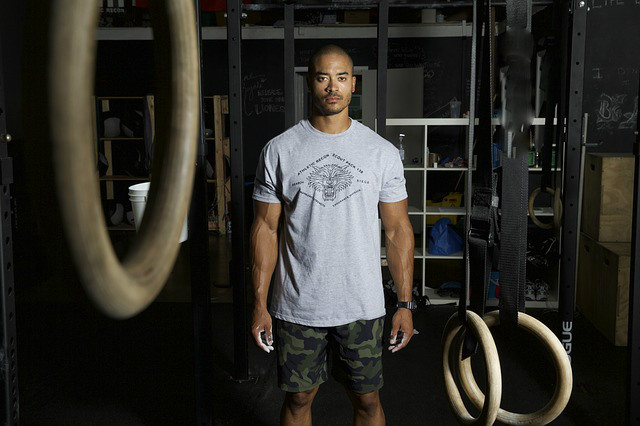
Is there a difference between performance nutrition and nutrition for general health? We often hear on TV or the Internet about athletes doing an intensive nutrition program and using sports science to their advantage. Is this what we should all be doing? Why would athletes do something for a competitive advantage and not us?
Well, first off, much of what you’re seeing is marketing. Everyone wants to appear to have a competitive advantage, and some also wish to sell books or ideas. In addition, at the top level of competition, things that help even one percent can be the difference maker.
That said, most of what elite athletes eat and do is very similar to what we all should be doing for general health. The foundation of what elite athletes eat and do is similar to the foundation of good general health, with just a few differences added in.
So, let’s explore a few things:
- The similarities between what elite athletes need and what those of us who aren’t at that level need
- The differences between ourselves and elite athletes, in terms of lifestyle needs
- What to do when we want to improve sports performance in recreational activities that aren’t our full-time commitment

The Good Stuff That Elite Athletes Eat and Do
Fruit and Vegetables
The benefits of eating fruit and vegetables is widely written about. Having vegetables at each meal, as well as seasonal fruit, is a staple of any good diet. Getting the most variety and different colored fruits and veggies are wise goals.
Fiber
Getting adequate fiber has wide-reaching effects, from weight control to keeping the digestive system healthy. The general recommendation is 25 to 35 grams of fiber depending on your body size. If you are hitting the fruit and vegetable department with consistency, fiber shouldn’t be an issue.
Protein
Choosing foods high in protein is essential to performance and health. Fish, poultry, beans, quinoa, meat, and eggs are all examples of foods that contain protein. Protein helps with recovery, maintaining and growing cells, muscle growth, preventing muscle loss, and maintaining a healthy weight, among many other functions.

Carbohydrate Quality
Not all foods are created equal, and that’s especially true for carbohydrate-rich foods. Quality is important because we want the most vitamin and mineral bang for your buck, as well as fiber. Potatoes, whole grains, brown rice, and quinoa are all foods that contain carbohydrates for energy, but also provide you with essential nutrients. White breads, pastries, and other refined products do not offer as many nutrients and also do not help regulate blood sugar as well as the more natural options.
Hydration
Our body is dependent on water for almost every biological function. Chronic dehydration can go unnoticed for quite some time. Our days get so busy that we forget to drink water or rely on coffee and energy drinks. Being even slightly dehydrated can cause cognitive decline and a lack of energy. A general recommendation is to drink one third your body weight in ounces, more if you are active. Use a water bottle with measurements on it to gauge where you stand.
Sleep
Sleep is the time where we rebuild and maintain our body and mind. The body focuses on doing maintenance tasks that are tough to do while we are awake and burning energy. Think of sleep as the most powerful performance supplement on the market. The best part is it’s free as long as you make time for it. Seven to nine hours per night is a range everyone should shoot for.

The Differences Between Us and Elite Athletes
The differences between eating for general health and for sport performance do depend on the sport or activity. For this section, I am assuming the athlete is engaged in a rigorous sport with a demanding schedule.
Calorie Amounts
I met a guy a few years who offered ski tours in Utah during the winter and would head to Alaska for the spring, summer, and fall to do backpack ski and snowshoeing trips. He claimed that during the cold, multi-day hikes he would eat a stick or more of butter on top of his meals to maintain his weight.
This was due to the extreme cold and activity, which demanded more calories than he could eat through regular food. This is the example I always use when discussing what athletes need to do to maintain activity. Michael Phelps is another example of this high-level activity. He was famous for the amount of food he ate just to keep up with activity he had scheduled.
But for general well-being, simply maintaining a healthy weight is our goal. The truth is, most of us are predominantly sedentary. I work out several times a week and go on recreational hikes and ski trips. Yet, I am still sedentary, relatively speaking. Unless you are a full-time athlete or have a full-time rigorous physical job, simply following intuitive eating and whole foods is plenty. There is no need to stuff in extra calories if you are doing a recreational activity.
Carbohydrate Amounts
In addition to overall higher calorie amounts, athletes tend to have a higher carbohydrate intake that makes up those added calories. It’s the preferred fuel for most sports. Quality still matters though, so ideally the athlete isn’t fueling up on cookies and sugar packets.
Electrolyte Replacement
While hydration is a similar element for the professional athlete and the rest of us, the professional does have an additional related consideration. For activities lasting over two hours, especially in hotter weather, electrolyte replacement is needed. While sports drinks are popular, I gravitate toward coconut water as my solution.
Competitive Drive and Financial Motivation
Athletes are often elite because of a strong competitive drive and finances that depend on their performance. Therefore, they are the exception, not the rule, when it comes to what’s possible regarding discipline.
I remember growing up looking toward bodybuilding as the “best” way to eat. While we can certainly take some knowledge from that sport, the truth is elite bodybuilders have a food discipline most of us cannot and should not match. Most of us, myself included, can’t match this level of intensity for long periods — and that’s okay.

Support Team
Have you ever tried to eat healthier and just wished you had a personal chef? Well, you are correct — that would help. James Harrison, an NFL player, is considered old for the job but stresses that his continued success depends on him spending hundreds of thousands of dollars a year on a team to keep him playing.
Spending $300,0000 on a chef, massage, and therapist team to make five million is a pretty nice equation. But at a certain level, things get complicated enough that you must have people doing things for you and watching for your best interest. The rest of us don’t have this “luxury.”
Supplements, Legal and Otherwise
The first thing most of us do when looking at a new nutrition book is flip to the supplement section. It’s human nature. Athletes do take supplements, and often it’s just to keep up with the vitamin and mineral demand they just can’t get in through food.
Legal performance enhancement supplements may give a slight edge in competition. The illegal ones, which do get used by some, can help quite a bit. However, these illegal substances can also have dire consequences on long-term health. As a general rule, we should stick with mother nature.
The Strategies You Can Implement as a Recreational Athlete
I work with a good number of weight-loss and general health clients, but I also deal in the golf world quite a bit. The majority of golfers prioritize optimal health, but would love a boost in performance. This is true for most sports that are more recreational in nature or at least not a full-time commitment.
Are you interested in boosting performance and living to a ripe 110 years old? Here is how you do it.
Lock Down the Similarities List
The first list we discussed included vegetables, fiber, protein, carbohydrate quality, water, and sleep as the foundation for anyone, athlete or not. I cannot stress this enough. If you are looking for a performance boost, make sure this list is absolutely nailed down. Sleeping four hours a night will make just about everything else matter little. Same goes for being dehydrated or having a poor whole food intake. The 7 Daily Habits of the Whole Life Challenge must become more of a routine before adding in any extra changes.
Track Performance Indicators Alongside Nutrition Changes
The objectivity of tracking performance indicators certainly depends on the sport. In golf, it’s quite easy. A score either goes up or down. In running, you either improved your time or you did not. Other sports, like tennis, can be a bit more subjective because it depends on the level of competition or in some cases your teammates.
Either way, your tracking doesn’t have to be perfect — just keep a record of performance and see where it is trending. Besides hard numbers, I often use a 1-10 scale of energy levels as another variable. The bottom line is that if you make a nutrition or lifestyle change, it’s helpful to see if it made a difference or not.

Consistent Fiber
As we discussed, getting adequate fiber is important for health and performance. But consistency of fiber intake can be extremely important in sport and competition. Having bathroom issues on the fifteenth hole in a golf competition isn’t exactly desirable.
You must have the confidence to know how your body will respond to your fiber intake. If 30 grams of fiber keeps you regular and feeling great, it’s imperative that number doesn’t vary too much. This is one instance where tracking numbers for a period can be helpful. You can add up grams of fiber per day, and tinker until things seem to work for you. After a while, your routine and habits will have you fall into consistent fiber quite regularly (pun intended).
Small Bumps in Carbs and Calories for Events
Sometimes events or practices can be rigorous and time consuming. You may need extra fuel for the work. However, if this intensity isn’t a daily occurrence, your energy intake should be higher only on the days you need it. Increasing carbohydrates by small amounts is an easy and effective way to have the energy you need to compete.
My advice: instead of gels or drinks, stick to whole foods. An extra serving of potato, quinoa, or rice can do the trick. Start small, with perhaps a half cup more at one meal the day before and during competition. Adding fruit as a snack is another way to get a few extra bits of energy.
Practice Changes Before Competition
While adding a small amount of calories or carbohydrates can help, finding out the day of competition that it didn’t agree with your system isn’t fun. Do a few practice rounds with the changes, and make sure you are confident in the response your body will have. This is also true for any other changes you may make on competition day. Always do trial runs first.
Create a Mini Team
While most of us can’t afford an expensive professional team, we don’t have to. Spouses, kids, and friends can all be of help to us. Food preparation, hydration reminders, and help tracking important changes and dates are tasks we can delegate in some degree. I have a few clients who made a deal with local restaurants to prepare lunches daily for them according to their specifications. Every little bit helps.

Consult with a Dietitian on Supplements
I am a big believer in whole foods as our primary source of nutrients. In most cases, 100% of our diets can and should be in the form of real, prepared food. However, there are times when help is needed, such as a deficiency due to a medical issue. If you feel something is missing from your diet, having a consultation with a Registered Dietitian may be in your best interest to make sure all your bases are covered.
What Elite Athletes Eat and Do That You Can Too
As with everything in life, context matters. We shouldn’t look to mirror elite athletes in terms of lifestyle, training, and preparation. However, if you have athletic goals, there are habits you can take on to both enhance performance and live a healthy life.
Mastering the basics is absolutely the number-one priority. Beyond that, being in tune with your body is next. That includes objective numbers such as score improvement and becoming better at subjective things like listening to your body.
We all have performance goals. Living a long prosperous life is absolutely “performance.” So is athletic competition. The great part about that is that we can always improve to be a better version of ourselves.



































